How a small group of people are changing conservation and saving an ecosystem

How a small group of people are changing conservation and saving an ecosystem

How a small group of people are changing conservation and saving an ecosystem
The Problem
Rainforests are essential for our existence...and they're disappearing
Biodiversity
Contains 50% of the world's biodiversity.
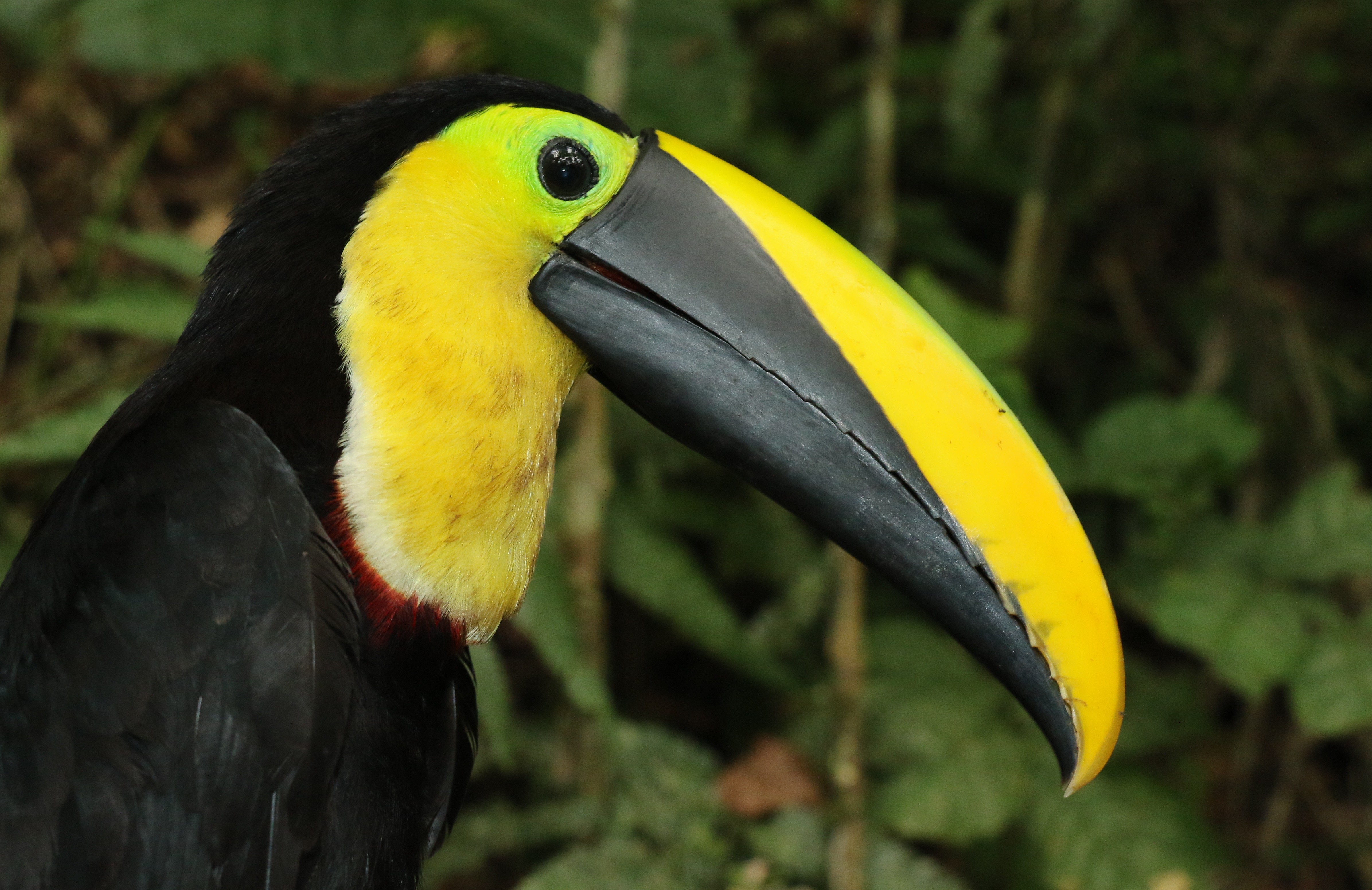
Carbon Sink
25% of the world's carbon

Weather
Stabilizes the climate and water cycle.
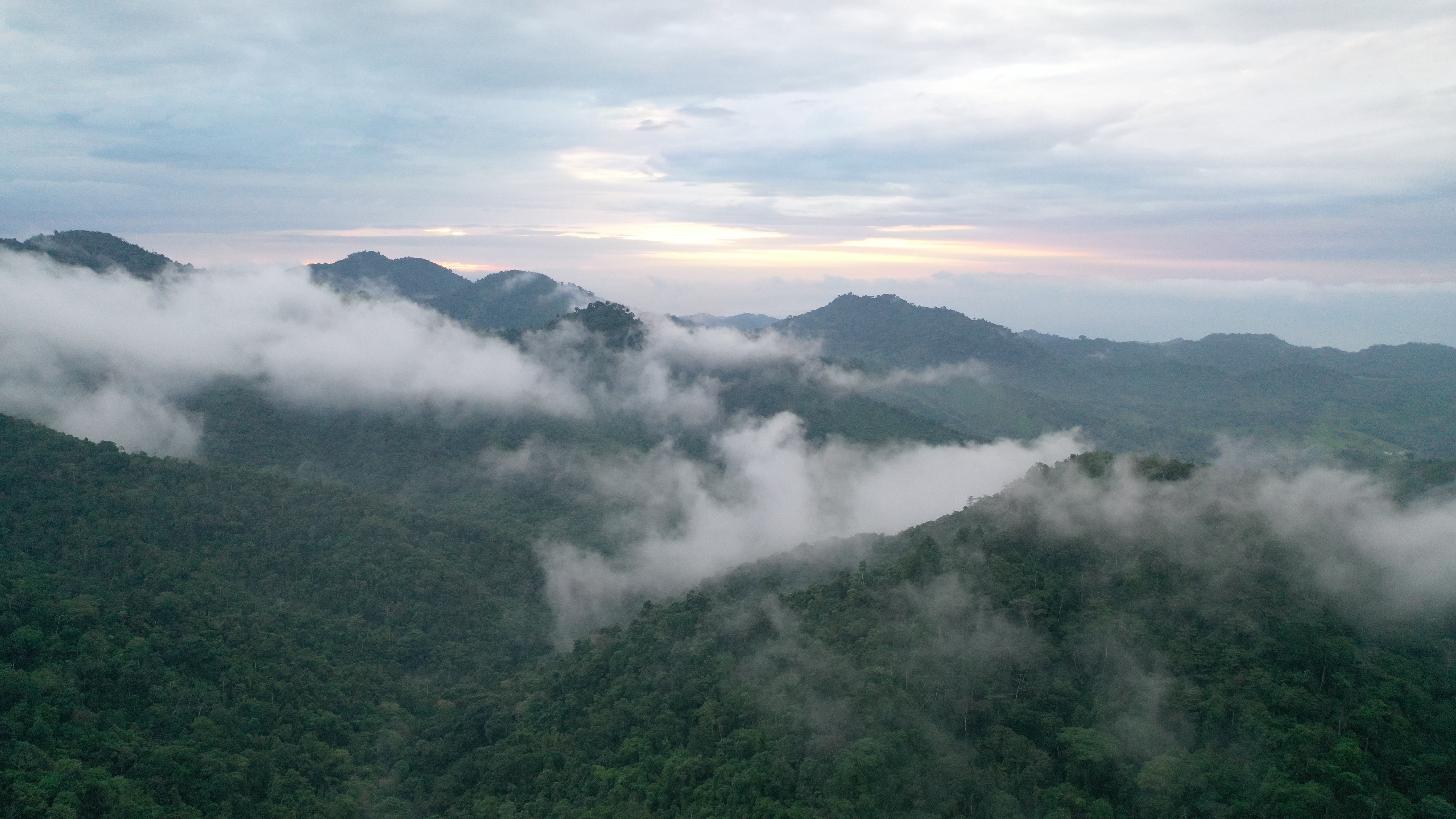
Biodiversity
Contains 50% of the world's biodiversity.

Carbon Sink
25% of the world's carbon

Weather
Stabilizes the climate and water cycle.

Biodiversity
Contains 50% of the world's biodiversity.

Biodiversity
Contains 50% of the world's biodiversity.

Carbon Sink
Stores 25% of the world's carbon.

Carbon Sink
Stores 25% of the world's carbon.

Weather
Stabilizes the global climate and water cycle.

Weather
Stabilizes the world’s climate and water cycle.

South America suffered a net loss of 320 million acres of forest between 1990-2020. One million species are in danger of extinction.
South America suffered a net loss of 320 million acres of forest between 1990-2020. One million species are in danger of extinction.
South America suffered a net loss of 320 million acres of forest between 1990-2020. One million species are in danger of extinction.
See full Living Planet Index statistics
90%
of tropical deforestation is caused by agriculture.

90%
of tropical deforestation is caused by agriculture.

90%
of tropical deforestation is caused by agriculture.

94%
decrease in wildlife populations in Latin America over 20 years.

94%
decrease in wildlife populations in Latin America over 20 years.

94%
decrease in wildlife populations in Latin America over 20 years.

91%
increase in carbon emissions over 40 years.

91%
increase in carbon emissions over 40 years.

91%
increase in carbon emissions over 40 years.


The Pacific Forest of Ecuador is a biodiversity hotspot and the most endangered rainforest on earth: only 2% remains and time is running out.
48
endangered & threatened species
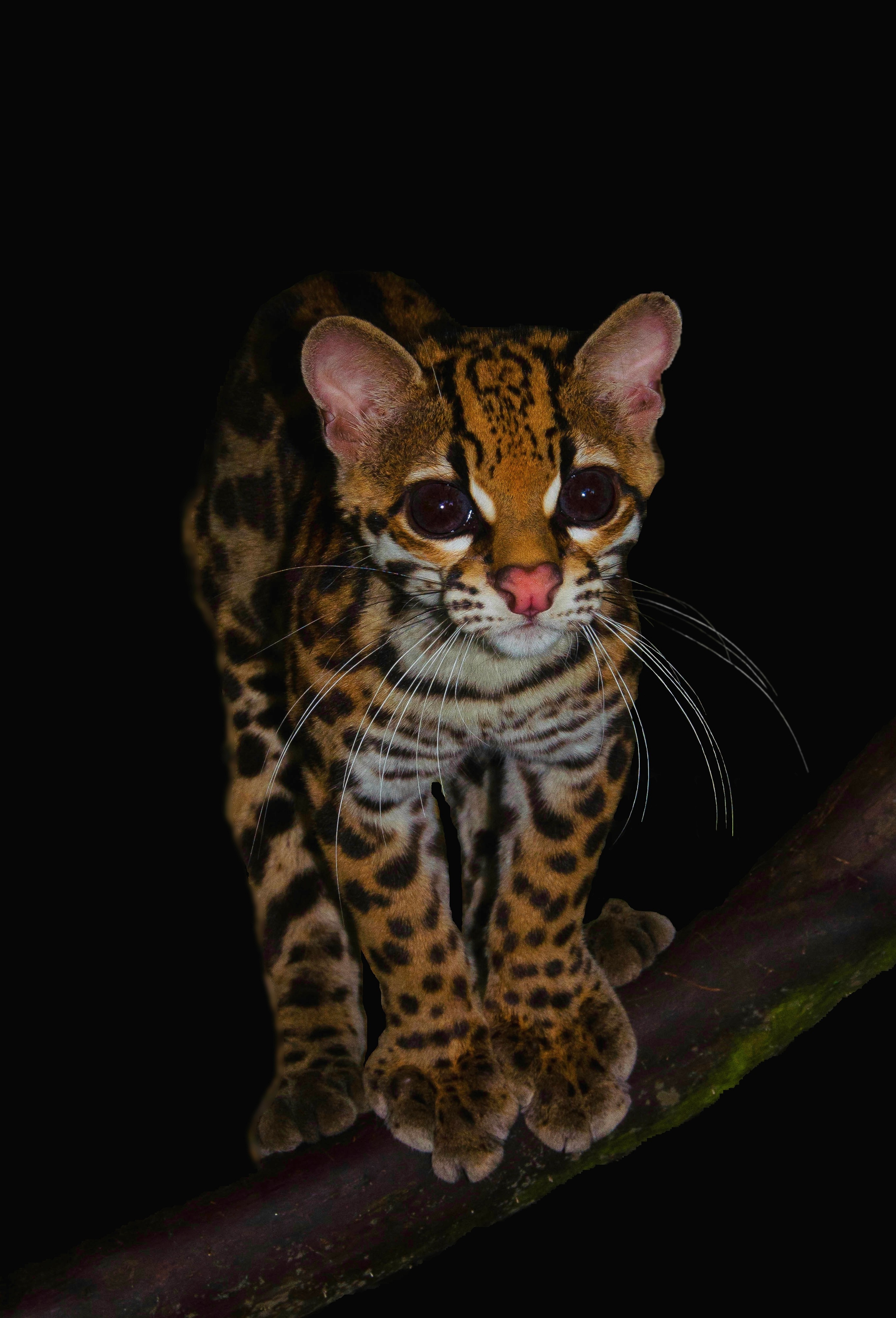
146
reptile and amphibian species

946
bird species


The Pacific Forest of Ecuador is a biodiversity hotspot and the most endangered rainforest on earth: only 2% remains and time is running out.
48
endangered & threatened species

146
reptile and amphibian species

946
bird species


The Pacific Forest of Ecuador is a biodiversity hotspot and the most endangered rainforest on earth: only 2% remains and time is running out.
48
endangered & threatened species

146
reptile and amphibian species

946
bird species

Compared to the U.S. per hectare it has…
1900x
the number of plant species

48
endangered & threatened species

48
endangered & threatened species

5000x
the number of reptile &hibian species

146
reptile and amphibian species

146
reptile and amphibian species

8000x
the number of bird species.

946
bird species

946
bird species

Traditional conservation hasn’t slowed biodiversity loss. Here’s why:
Traditional conservation hasn’t slowed biodiversity loss. Here’s why:
Traditional conservation hasn’t slowed biodiversity loss. Here’s why:
1
It doesn’t address the socio-economic conditions leading to deforestation.
2
It doesn’t integrate local communities, creating an “us-vs-them” mentality.
3
It doesn’t provide more lucrative alternatives to farmers.
4
It lacks sustainable long-term financing at scale.
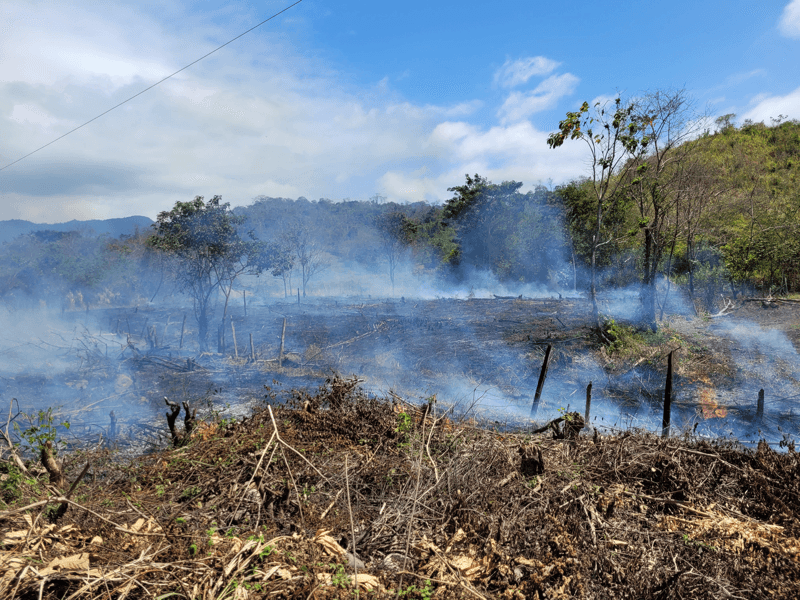


The Solution
We offer a new paradigm for protecting and restoring biodiversity
01
Acquire
Strategic land acquisition to build the Capuchin Corridor
The Capuchin Corridor is a large-scale conservation initiative to connect three key remnants of the Pacific Forest of Ecuador. This will create a contiguous rainforest spanning a 43-km mountain range. It’s a uniquely diverse ecosystem named in honor of the critically endangered Ecuadorian Capuchin Monkey. Here’s how it works:
You sponsor the acquisition of strategic properties surrounding and connecting existing protected areas.
TMA, a nonprofit conservation organization, protects and restores the land in partnership with local communities.
Collectively we build a 35,000-acre conservation corridor.

01
Acquire
Strategic land acquisition to build the Capuchin Corridor
The Capuchin Corridor is a large-scale conservation initiative to connect three key remnants of the Pacific Forest of Ecuador. This will create a contiguous rainforest spanning a 43-km mountain range. It’s a uniquely diverse ecosystem named in honor of the critically endangered Ecuadorian Capuchin Monkey. Here’s how it works:
You sponsor the acquisition of strategic properties surrounding and connecting existing protected areas.
TMA, a nonprofit conservation organization, protects and restores the land in partnership with local communities.
Collectively we build a 35,000-acre conservation corridor.

01
Acquire
Strategic land acquisition to build the Capuchin Corridor
The Capuchin Corridor is a large-scale conservation initiative to connect three key remnants of the Pacific Forest of Ecuador. This will create a contiguous rainforest spanning a 43-km mountain range. It’s a uniquely diverse ecosystem named in honor of the critically endangered Ecuadorian Capuchin Monkey. Here’s how it works:
You sponsor the acquisition of strategic properties surrounding and connecting existing protected areas.
TMA, a nonprofit conservation organization, protects and restores the land in partnership with local communities.
Collectively we build a 35,000-acre conservation corridor.

02
Protect & Restore
Protect all existing forest + reforest what's already been cleared
Protecting and restoring this forest over the long term is exactly what TMA has been doing for the last 16 years, in partnership with the communities that inhabit it, donors and researchers. Here is how:
Protection via boots-the-ground park rangers who leverage cutting-edge technology like bioacoustics monitors, infrared camera traps, and satellite imagining analyzed by machine learning.
Restoration techniques like assisted natural regeneration (ANR) and applied nucleation honed in partnership with researchers from esteemed institutions like the Yale, ETH Zurich, and Crowther Lab.

02
Protect & Restore
Protect all existing forest + reforest what's already been cleared
Protecting and restoring this forest over the long term is exactly what TMA has been doing for the last 16 years, in partnership with the communities that inhabit it, donors and researchers. Here is how:
Protection via boots-the-ground park rangers who leverage cutting-edge technology like bioacoustics monitors, infrared camera traps, and satellite imagining analyzed by machine learning.
Restoration techniques like assisted natural regeneration (ANR) and applied nucleation honed in partnership with researchers from esteemed institutions like the Yale, ETH Zurich, and Crowther Lab.

02
Protect & Restore
Protect all existing forest + reforest what's already been cleared
Protecting and restoring this forest over the long term is exactly what TMA has been doing for the last 16 years, in partnership with the communities that inhabit it, donors and researchers. Here is how:
Protection via boots-the-ground park rangers who leverage cutting-edge technology like bioacoustics monitors, infrared camera traps, and satellite imagining analyzed by machine learning.
Restoration techniques like assisted natural regeneration (ANR) and applied nucleation honed in partnership with researchers from esteemed institutions like the Yale, ETH Zurich, and Crowther Lab.

03
Transform
Regenerative agroforestry can reverse deforestation
Conservation is won by tackling the socio-economic drivers of deforestation. Our featured story in Smithsonian Magazine, tells how chocolate companies, conservationists, and local farmers all joined forces to restore forests + improve local food security + boost farmer income + remove CO2 from the atmosphere. Here's how our program works:
Farmers plant a diverse mix of native shade trees, fruit trees, and heirloom cacao trees on degraded land.
We provide all the materials and cover the start-up costs, including crucial farmer bridge payments during the growing period before tree crops start producing income.
Luxury chocolate companies like To’ak pay farmers 3x the standard price for this ultra-premium grade cacao.
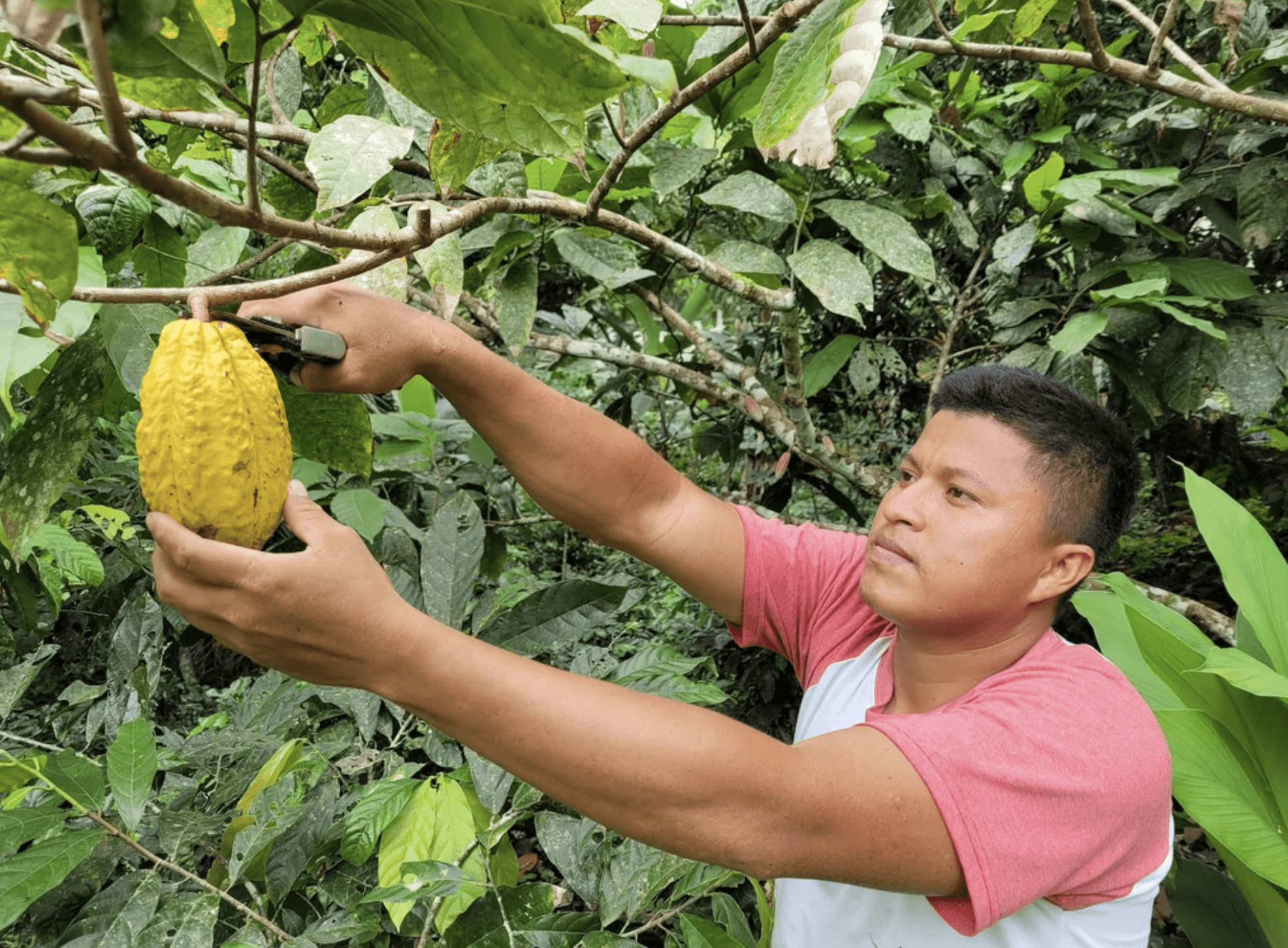
03
Transform
Regenerative agroforestry can reverse deforestation
Conservation is won by tackling the socio-economic drivers of deforestation. Our featured story in Smithsonian Magazine, tells how chocolate companies, conservationists, and local farmers all joined forces to restore forests + improve local food security + boost farmer income + remove CO2 from the atmosphere. Here's how our program works:
Farmers plant a diverse mix of native shade trees, fruit trees, and heirloom cacao trees on degraded land.
We provide all the materials and cover the start-up costs, including crucial farmer bridge payments during the growing period before tree crops start producing income.
Luxury chocolate companies like To’ak pay farmers 3x the standard price for this ultra-premium grade cacao.

03
Transform
Regenerative agroforestry can reverse deforestation
Conservation is won by tackling the socio-economic drivers of deforestation. Our featured story in Smithsonian Magazine, tells how chocolate companies, conservationists, and local farmers all joined forces to restore forests + improve local food security + boost farmer income + remove CO2 from the atmosphere. Here's how our program works:
Farmers plant a diverse mix of native shade trees, fruit trees, and heirloom cacao trees on degraded land.
We provide all the materials and cover the start-up costs, including crucial farmer bridge payments during the growing period before tree crops start producing income.
Luxury chocolate companies like To’ak pay farmers 3x the standard price for this ultra-premium grade cacao.




The Impact
Lasting impact that can be measured and monitored
Impact
CO2 Benefit
3.1 tons/acre/year
77 tons/acre over 25 years
Local Livelihoods
2-4x the income of cattle ranching
Biodiversity Protection
1,346 plant species 390 bird species 98 reptiles & amphibs
Costs
Avg. Acquisition Cost
$668 per acre
one-time, upfront
Community Development Fund
$133 per acre
one-time, upfront
Reserve Management Fee
7% annually
Invest in the social and economic development of local communities
Invest in the social and economic development of local communities
Invest in the social and economic development of local communities
Economy
Cacao processing facilities

Economy
Cacao processing facilities

Community
Female-led community centers
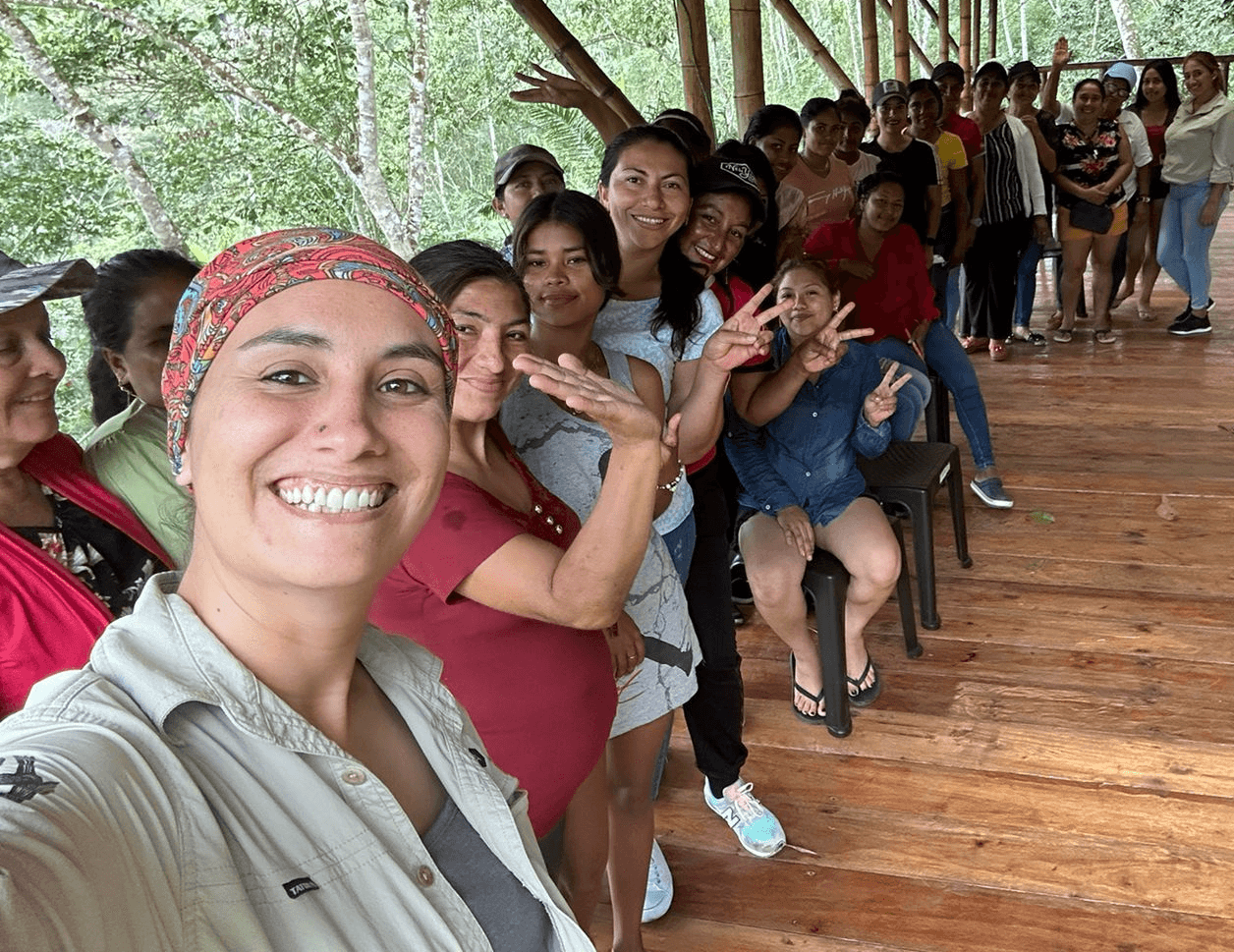
Community
Female-led community centers

Education
School transport and education programs

Education
School transport and education programs

Economy
Cocoa Processing Facilities

Community
Female Led Community Centers
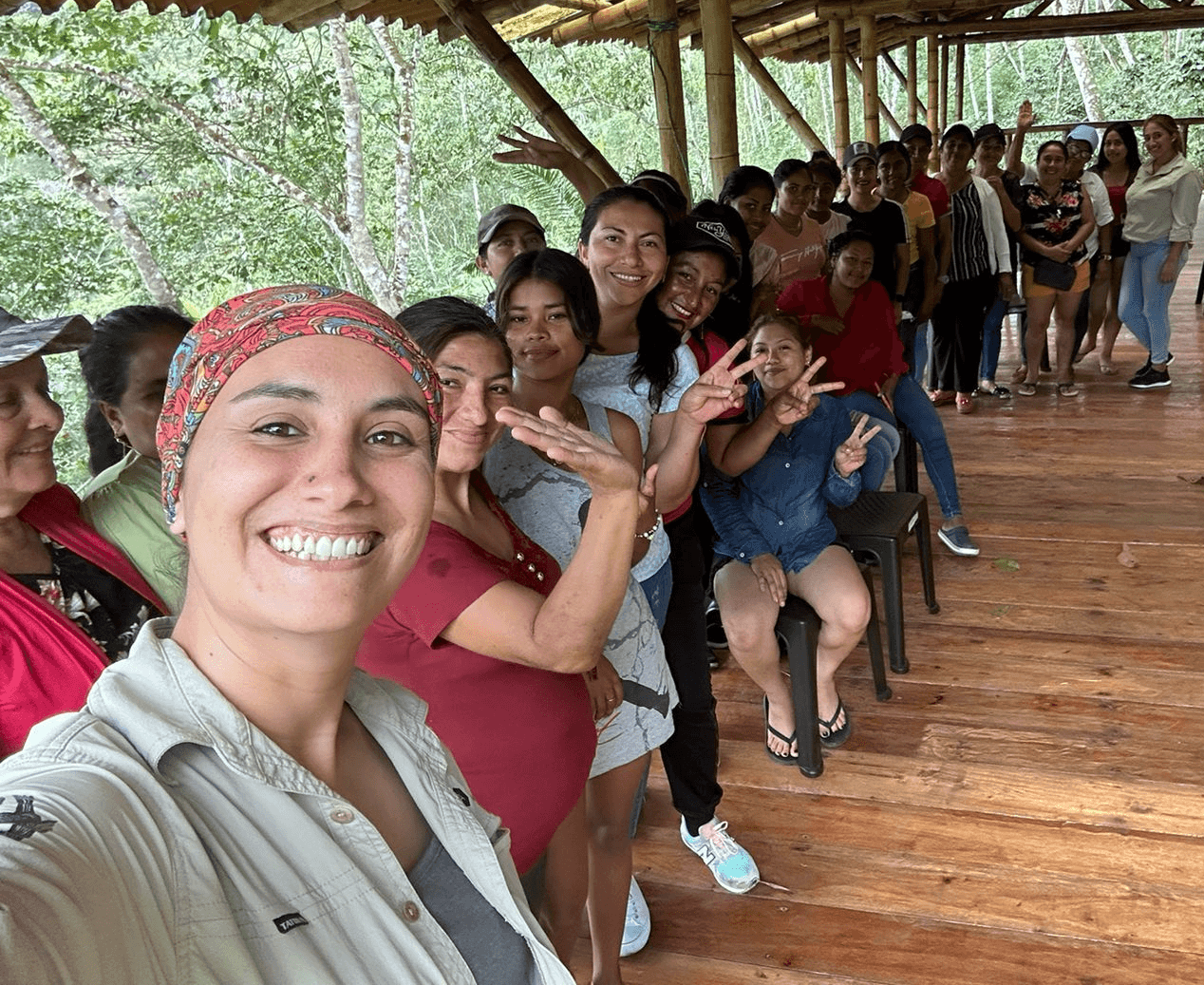
School Transport and Workshops
Education

Economy
Cocoa Processing Facilities

Community
Female Led Community Centers

School Transport and Workshops
Education


Phase 1
Expand the Jama-Coaque Reserve (JCR) by purchasing 23 contiguous properties
Phase 2
Connect the three protected areas to create a 43-km rainforest corridor
Phase 3
Take our model to other critically endangered ecosystems.


2025
Phase 1
Phase 1
Secure the primary reserve by purchasing 23 contiguous properties
Expand the Jama-Coaque Reserve (JCR) by purchasing 23 contiguous properties
Expand the Jama-Coaque Reserve (JCR) by purchasing 23 contiguous properties
2029
Phase 2
Phase 2
Expand north connecting to Paje de Pajero Reserve.
Connect the three protected areas to create a 43-km rainforest corridor
Connect the three protected areas to create a 43-km rainforest corridor
2030
Phase 3
Phase 3
Take our proven agroforestry model to other cacao and coffee regions
Take our model to other critically endangered ecosystems.
Take our model to other critically endangered ecosystems.
Vision
Vision
Vision
Protected
35,000 acres
Protected
35,000 acres
Protected
35,000 acres
Regenerative Agroforestry
500 acres
Regenerative Agroforestry
500 acres
Regenerative Agroforestry
500 acres
Reforested
8,000 acres
Reforested
8,000 acres
Reforested
8,000 acres
Rural Communities
36
Rural Communities
36
Rural Communities
36
The Collective
Join the Capuchin Collective
01
Sponsor land purchase
TMA acquires the property in your name, and provides you with:
Detailed property profile, including GPS coordinates, carbon benefits, and land cover assessment
Naming rights of trails or land features within the property
Digital frame with property and program imagery
Annual shipment of To’ak chocolate sourced from local farmers
Connect with other members of the Collective

01
Sponsor land purchase
TMA acquires the property in your name, and provides you with:
Detailed property profile, including GPS coordinates, carbon benefits, and land cover assessment
Naming rights of trails or land features within the property
Digital frame with property and program imagery
Annual shipment of To’ak chocolate sourced from local farmers
Connect with other members of the Collective

01
Sponsor land purchase
TMA acquires the property in your name, and provides you with:
Detailed property profile, including GPS coordinates, carbon benefits, and land cover assessment
Naming rights of trails or land features within the property
Digital frame with property and program imagery
Annual shipment of To’ak chocolate sourced from local farmers
Connect with other members of the Collective

02
Monitor your investment
TMA manages the land for you, providing updates on the property, corridor, and community.
Watch the rainforest regrow with satellite imagery
Virtually tour your property through GoPro videos by park rangers
Fly over it with drone videos
Catch rare wildlife via camera traps
Read newsletters and get private updates

02
Monitor your investment
TMA manages the land for you, providing updates on the property, corridor, and community.
Watch the rainforest regrow with satellite imagery
Virtually tour your property through GoPro videos by park rangers
Fly over it with drone videos
Catch rare wildlife via camera traps
Read newsletters and get private updates

02
Monitor your investment
TMA manages the land for you, providing updates on the property, corridor, and community.
Watch the rainforest regrow with satellite imagery
Virtually tour your property through GoPro videos by park rangers
Fly over it with drone videos
Catch rare wildlife via camera traps
Read newsletters and get private updates

02
Visit your family's legacy
Experience the rainforest with family and friends in perpetuity.
Stay in the “Bamboo House” lodge in the middle of the Jama-Coaque Reserve
Hike to your sponsored property
Swim in pristine waterfalls, taste cacao fruit fresh off the tree
Meet the farmers and visit the cacao processing facility
Pair with a trip to the Galapagos islands

02
Visit your family's legacy
Experience the rainforest with family and friends in perpetuity.
Stay in the “Bamboo House” lodge in the middle of the Jama-Coaque Reserve
Hike to your sponsored property
Swim in pristine waterfalls, taste cacao fruit fresh off the tree
Meet the farmers and visit the cacao processing facility
Pair with a trip to the Galapagos islands

02
Visit your family's legacy
Experience the rainforest with family and friends in perpetuity.
Stay in the “Bamboo House” lodge in the middle of the Jama-Coaque Reserve
Hike to your sponsored property
Swim in pristine waterfalls, taste cacao fruit fresh off the tree
Meet the farmers and visit the cacao processing facility
Pair with a trip to the Galapagos islands

About the Collective
The Capuchin Collective was created by forward-thinking entrepreneurs from Silicon Valley in partnership with Third Millennium Alliance (TMA), a nonprofit rainforest conservation organization based in Ecuador.
TMA has been working on the frontlines of forest conservation and reforestation in the Capuchin Corridor since 2007. Its flagship project is the establishment and ongoing management of the Jama-Coaque Reserve, which currently protects 2,700 acres—the largest protected area in the Capuchin Corridor. TMA is legally incorporated in both the U.S. and in Ecuador. All contributions are tax-deductible under Section 501(c)3.. Learn more at www.tma.earth or watch the video.






